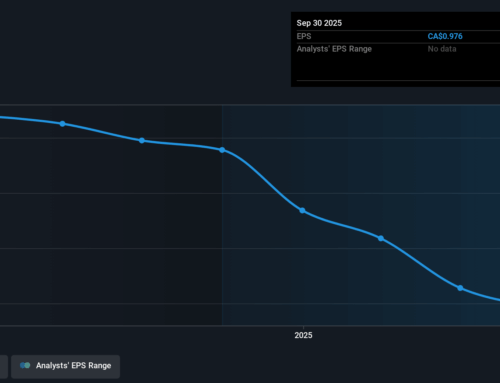Should iShares Morningstar Mid-Cap ETF (IMCB) Be on Your Investing Radar?
March 31, 2025
If you’re interested in broad exposure to the Mid Cap Blend segment of the US equity market, look no further than the iShares Morningstar Mid-Cap ETF (IMCB), a passively managed exchange traded fund launched on 06/28/2004.
The fund is sponsored by Blackrock. It has amassed assets over $981.36 million, making it one of the average sized ETFs attempting to match the Mid Cap Blend segment of the US equity market.
Compared to large and small cap companies, mid cap businesses tend to have higher growth prospects and are less volatile, respectively, with market capitalization between $2 billion and $10 billion. These types of companies, then, have a good balance of stability and growth potential.
Blend ETFs are aptly named, since they tend to hold a mix of growth and value stocks, as well as show characteristics of both kinds of equities.
Cost is an important factor in selecting the right ETF, and cheaper funds can significantly outperform their more expensive counterparts if all other fundamentals are the same.
Annual operating expenses for this ETF are 0.04%, making it one of the least expensive products in the space.
It has a 12-month trailing dividend yield of 1.51%.
While ETFs offer diversified exposure, which minimizes single stock risk, a deep look into a fund’s holdings is a valuable exercise. And, most ETFs are very transparent products that disclose their holdings on a daily basis.
This ETF has heaviest allocation to the Financials sector–about 15.90% of the portfolio. Industrials and Information Technology round out the top three.
Looking at individual holdings, Arthur J Gallagher (AJG) accounts for about 0.76% of total assets, followed by Capital One Financial Corp (COF) and Fortinet Inc (FTNT).
The top 10 holdings account for about 6.17% of total assets under management.
IMCB seeks to match the performance of the MORNINGSTAR US MID CAP INDEX before fees and expenses. The Morningstar US Mid Cap Index comprises of mid-capitalization U.S. equities.
The ETF has lost about -2.98% so far this year and it’s up approximately 2.61% in the last one year (as of 03/31/2025). In the past 52-week period, it has traded between $68.23 and $82.17.
The ETF has a beta of 1.09 and standard deviation of 17.73% for the trailing three-year period. With about 440 holdings, it effectively diversifies company-specific risk.
IShares Morningstar Mid-Cap ETF carries a Zacks ETF Rank of 3 (Hold), which is based on expected asset class return, expense ratio, and momentum, among other factors. Thus, IMCB is a reasonable option for those seeking exposure to the Style Box – Mid Cap Blend area of the market. Investors might also want to consider some other ETF options in the space.
The Vanguard Mid-Cap ETF (VO) and the iShares Core S&P Mid-Cap ETF (IJH) track a similar index. While Vanguard Mid-Cap ETF has $71.62 billion in assets, iShares Core S&P Mid-Cap ETF has $88.86 billion. VO has an expense ratio of 0.04% and IJH charges 0.05%.
Retail and institutional investors increasingly turn to passively managed ETFs because they offer low costs, transparency, flexibility, and tax efficiency; these kind of funds are also excellent vehicles for long term investors.
To learn more about this product and other ETFs, screen for products that match your investment objectives and read articles on latest developments in the ETF investing universe, please visit Zacks ETF Center.
Want the latest recommendations from Zacks Investment Research? Today, you can download 7 Best Stocks for the Next 30 Days. Click to get this free report
iShares Morningstar Mid-Cap ETF (IMCB): ETF Research Reports
Capital One Financial Corporation (COF) : Free Stock Analysis Report
Arthur J. Gallagher & Co. (AJG) : Free Stock Analysis Report
Fortinet, Inc. (FTNT) : Free Stock Analysis Report
iShares Core S&P Mid-Cap ETF (IJH): ETF Research Reports
Vanguard Mid-Cap ETF (VO): ETF Research Reports
This article originally published on Zacks Investment Research (zacks.com).
Terms and Privacy Policy
Search
RECENT PRESS RELEASES
Related Post



